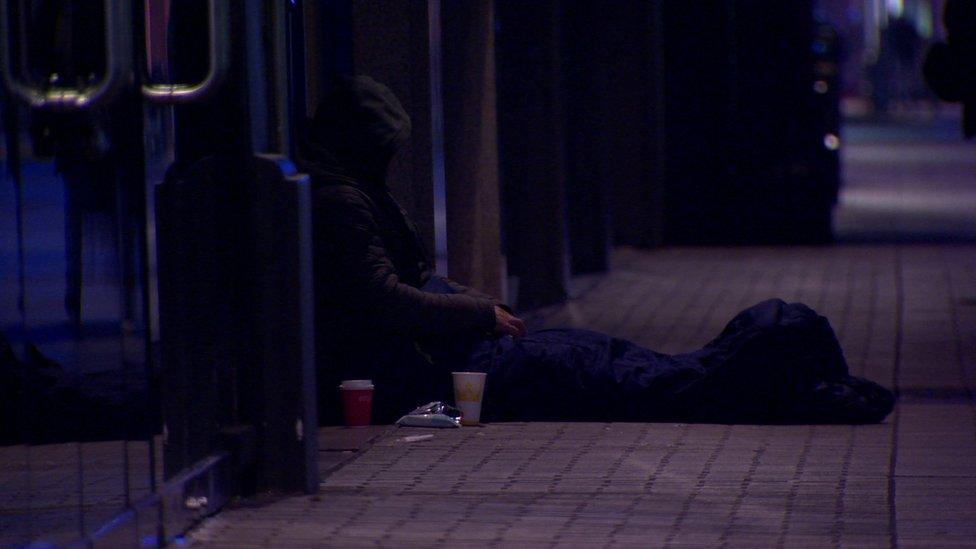Northern Ireland's first health hub for homeless to open
- Published
Nurse Susan Semple says people are suffering and dying on the streets.
Northern Ireland's first health hub for the homeless is to open in Belfast city centre offering support to hundreds of men and women.
The £225,000 pilot project is the biggest cash injection by the Department of Health for the homeless in more than 20 years.
Services including nursing, podiatry and mental health counselling will be on offer.
Susan Semple, a nurse working among the homeless, said it is long overdue.
"People are dying on our streets," she said.
"It's really rough out there. People are suffering extreme health issues. They've obviously the same health problems that you and I have but they are exacerbated because of their life style and the elements of living outside."
While more people are turning to the streets as somewhere to live, more people are dying there as well.
One hundred and forty-eight people registered as homeless in Northern Ireland died while waiting for social housing in an 11-month period, according to a recent report in investigative news website The Detail.
From October 2017 to August 2018, 13 homeless people per month had housing applications closed due to death.
Ms Semple said the face of homeless people is changing as there are a lot of younger people and more women.
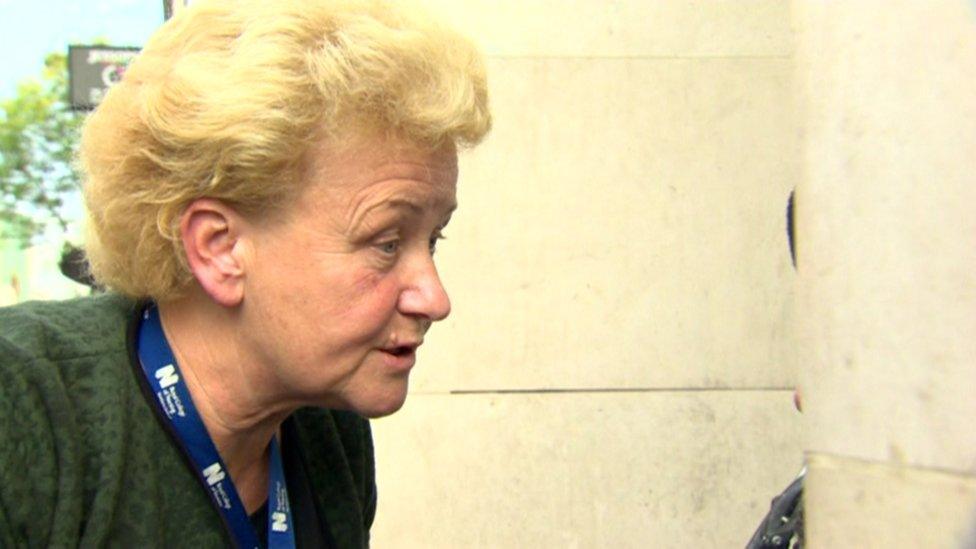
Susan has worked with the homeless for two decades
"While homelessness has increased, our bed spaces have decreased," she said.
"There are so many more sleeping rough. The face of homelessness has changed. They are younger and there are more women.
"Last year we came across a man lying in the snow in Botanic Gardens. He had six layers of clothes on him.
"On the fourth layer the zips had rusted. We had to cut him out of his clothes he was so ill. We brought him to hospital and he lived."
The Department of Health told the BBC that it is currently looking for a location for the new hub, but it has not ruled out using an existing building.
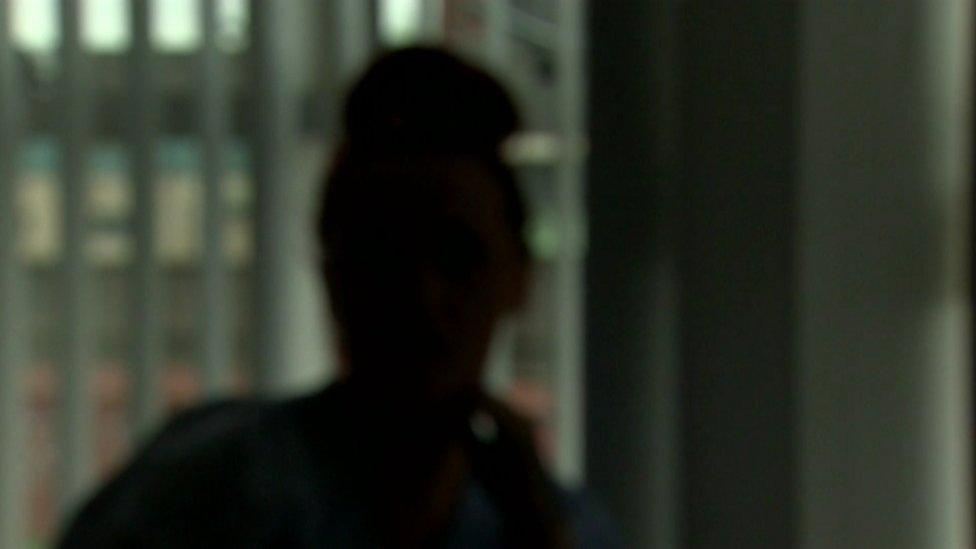
"I was shaking. Just lying on the street and shaking. I couldn't control my own body,"
This woman lived on the street for nearly a year.
Aged in her 20s, she said being homeless means having no direct access to a GP or a dentist.
Catching the flu forced her to go home.
"I was shaking. Just lying on the street and shaking," she said.
"I couldn't control my own body, it was freezing and that was even with the cardboard boxes and the sleeping bags.
"So the cold went right through them and into my bones. You can't feel your hands and feet. You are just freezing."
She became extremely ill and was found by staff from The Welcome Organisation. She returned to the family home.
"It's just awful being on the street," she said.
"There is no way to describe it. People would say Belfast at night is quiet, it is not.
"I'd say Belfast becomes alive at night. There isn't an alleyway or doorway that doesn't have a person in a sleeping bag."

Analysis: Desperately needed investment
By Marie-Louise Connolly, BBC News NI Health Correspondent
This is the biggest ever investment for the homeless in Belfast.
While it's a positive move, it really is a drop in the ocean for the services that are required. What's on offer is just part time. In fact, it amounts to just two extra days a week.
Townsend Street was busy the day myself and my cameraman called in. Unwashed men and women were lying on seats. One woman sat in a corner totally oblivious to her surroundings.
She is addicted to drugs and alcohol.
Her hair was unwashed and her fingernails were caked with dirt. There was a strong smell of urine.
Her eyes were sad and she'd been crying.
While she could have stayed there all day, as darkness fell, she would've had to head outside to the street.
Others will have had to find money to sleep in a hostel.
While this is Belfast, other cities including Londonderry and Armagh also have homeless people.
Later we met Fi. She too is an addict.
Staff had been looking for her for four months. When they found her in the city centre, she said she had been robbed.
This investment is desperately needed and the dedicated staff must be given the time and support to make it work.

The idea of the hub is to offer more outreach services to people who live on the streets.
However, this is only a pilot and the services are part-time.
They will include a GP and an outreach nurse coming to the hub two days a week.
A dentist will also be on site for half a day, as will a podiatrist.
A senior outreach nurse will also be employed for an additional day.
It is hoped that the services will be more accessible to people who often drift around the streets, leading a chaotic lifestyle.
They will also be given a medical record.
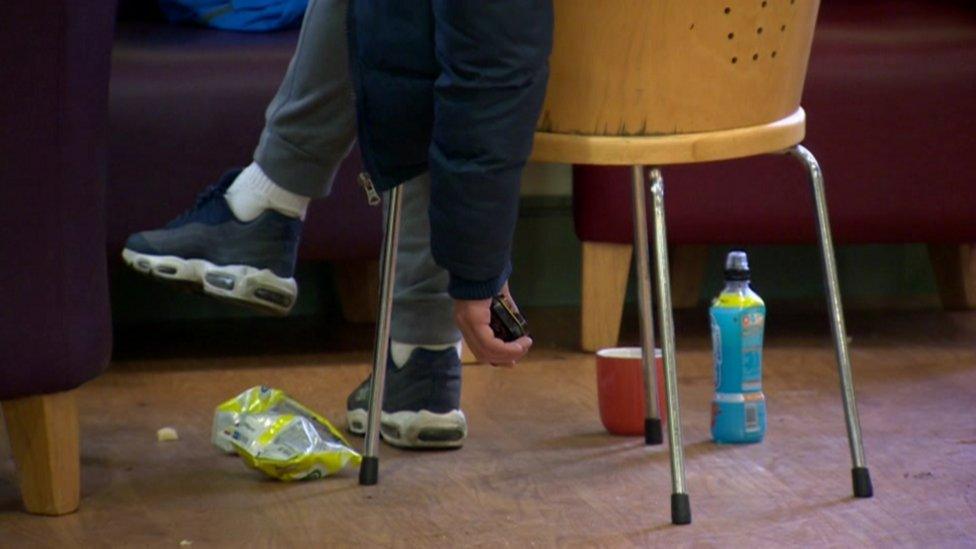
It is hoped that the services will be more accessible to people who often drift around the streets
'We are trying something new'
Dr Gillian Armstrong, senior medical officer at the Department of Health, said the initiative will improve the health of people who are homeless.
As it is a pilot project, I suggested that it would seem heartless to remove the service for some of the most vulnerable people in society after 18 months.
Dr Armstrong said that they hoped that would not be the case.
"We are trying something new," Dr Armstrong said.
"We need to see if it works for the service users, those men and women living on the street," she said.
"We will listen to their feedback and see if they are benefiting. Then we have to prove that it is financially sustainable."
It is also hoped that the hub will prevent homeless people becoming ill and having to be brought to Emergency Departments.
- Published21 November 2017
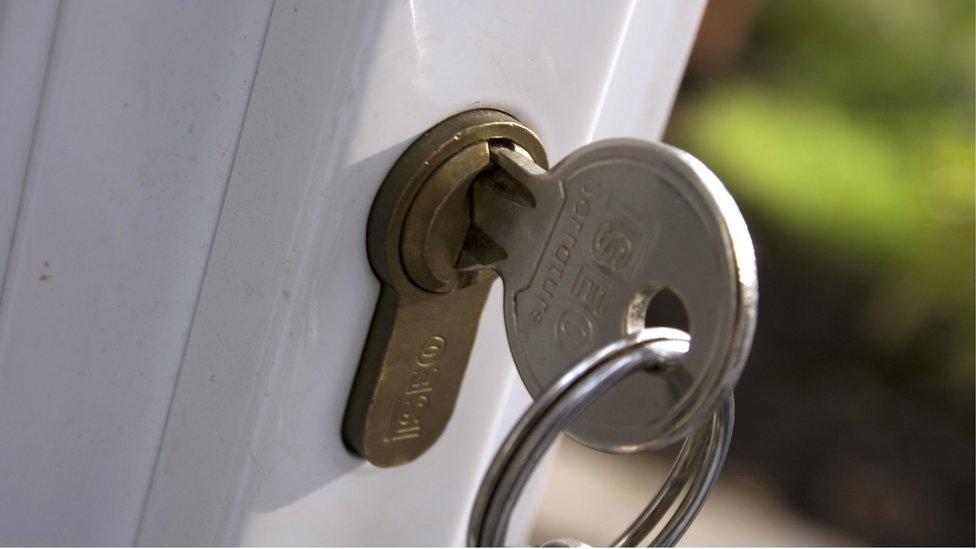
- Published5 December 2016
